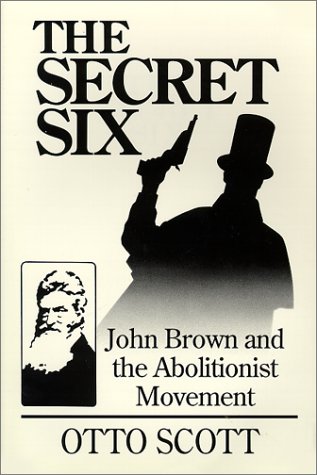Much has been written about John Brown of Harpers Ferry, Virginia fame over the years. And much of it is historical and political goop. In the North he has been portrayed as everything from slavery emancipation messiah to national hero. In parts of eastern Kansas, to this day, the unwritten commandment is “Thou shalt not take the name of John Brown in vain.”
I have never forgotten a “conversation” I had with a woman in eastern Kansas several years ago as she tried to inform me that John Brown was a hero while Jeb Stuart was a terrorist. Yes, folks, that’s the way it is in parts of eastern Kansas even today. You talk about skewed history! Why do you suppose that Obama went to Osawatomie, Kansas to give that speech awhile back? That’s John Brown territory and Obama knows it. He was identifying with the crowd that thinks John Brown was the greatest thing since sliced bread.
In actuality, John Brown was never much good at much of anything until he tried his hand at terrorism–and even in that occupation he had lots of help and support from other would-be Yankee terrorists who wanted him to do their dirty work so their hands would stay clean–and even that didn’t quite work out.
Historian Otto Scott, back in the 1970s, wrote a biography of John Brown which was reprinted in 1987 by the Foundation for American Education under the title “The Secret Six: The Fool as Martyr.” Scott detailed much of Brown’s life and took note of his inept business practices. On page 20 of the book he observed: “By 1851 an avalanche of lawsuits had fallen on Brown and his partner, Colonel Perkins, and Brown had to move his family back to Akron, Ohio, where he remained dependent upon his partner’s kindness and support.
Perkins was his only defense against an army of creditors.
For the next several years Brown was either in court or preparing to appear, making depositions or listening to them, traveling to one judicial arena or another, arguing or hearing arguments. How he escaped punishment for his incredibly inept commercial dealings, his numerous violations of contract, and his cavalier handling of other men’s money and goods remains a mystery.” I don’t know if you could categorize Brown as an outright crook, but at the least, he was “sharp” in his business practices.
J. C. Furnas in “The Road to Harpers Ferry” noted much the same thing in regard to business that Otto Scott did. At one point Brown operated a tannery in Pennsylvania, but that business did not suit him. Furnas observed that” “Tanning in Pennsylvania did not suit.
His schemes seldom did. He returned to Ohio to farm and speculate in land. He and other Browns contested suits over land titles…He and two of his sons once spent some days in jail–mere formality maybe–for violently resisting a foreclosure. As often happened to his contemporaries to, he fell into bankruptcy with some flavor of dishonesty.” This on page 11 of Furnas’ book. I’ve known people over the years that followed every “get rich quick” scheme that came down the pike. None of them ever panned out and it seems as if Brown was almost in that category.
To be continued.
Source @RevisedHistory

